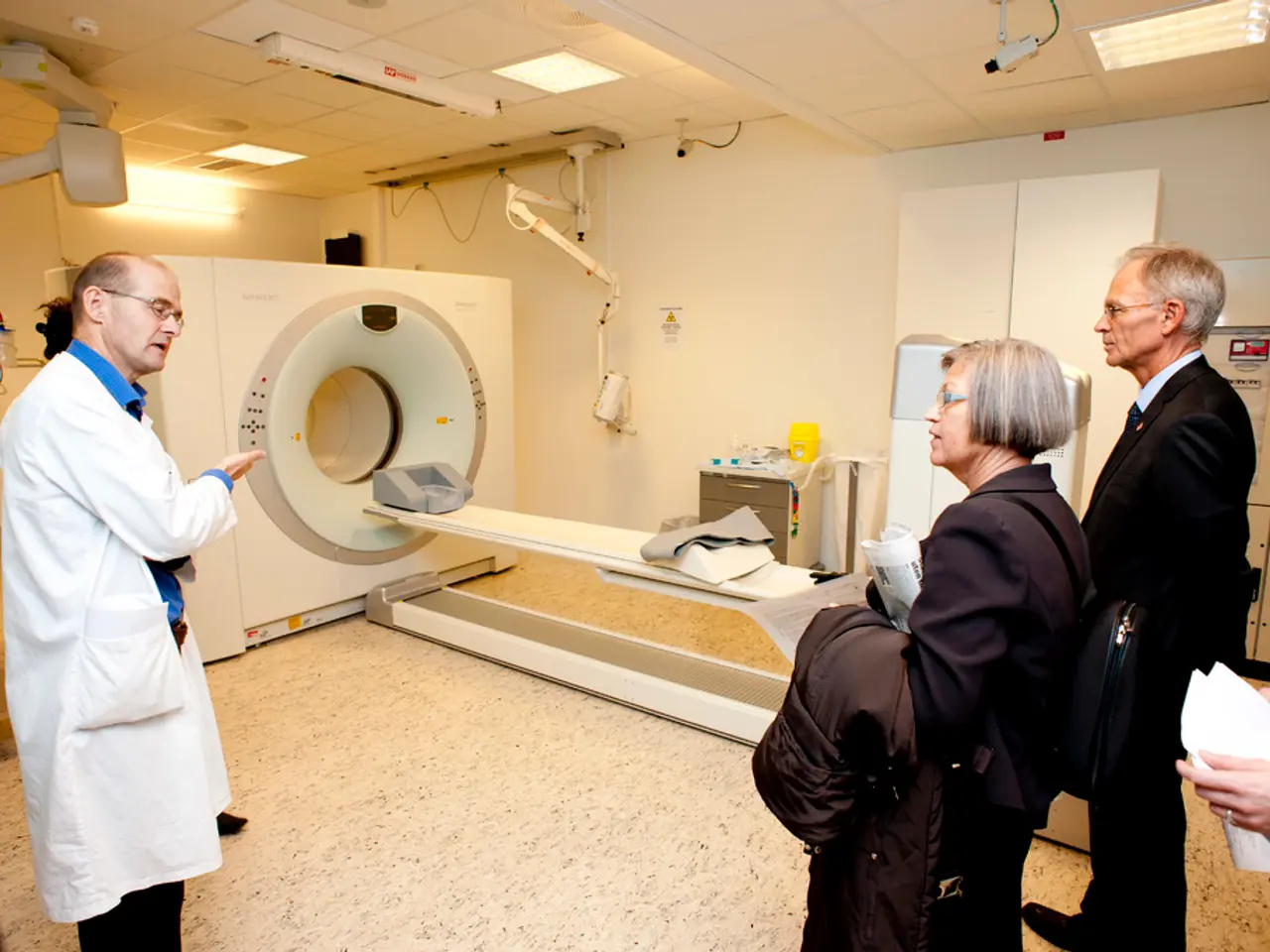Machine Learning's Impact on Revolutionary Advancements in Healthcare
The world of healthcare is undergoing a significant transformation, thanks to the integration of advanced technologies, particularly Artificial Intelligence (AI). AI is enhancing various aspects of healthcare, from predictive analytics to personalized medicine, and promising a future of safer, more efficient, and personalized healthcare delivery.
Predictive Analytics and Medical Imaging
AI models are analyzing vast amounts of patient data, including electronic medical records (EMRs) and data from wearable devices, to forecast health risks such as sepsis, heart failure, and cancer aggressiveness. This early intervention improves survival rates and reduces complications. In the field of medical imaging, AI algorithms are detecting abnormalities in X-rays, MRIs, and CT scans that might be missed by humans, reducing diagnostic errors and speeding up treatment decisions.
Personalized Medicine and Patient Monitoring
AI is revolutionizing personalized medicine by integrating genetic, lifestyle, and clinical data to tailor treatments. For example, AI can predict tumor stemness in oncology to estimate cancer persistence and recurrence risk, allowing clinicians to customize therapies and match patients to optimal clinical trials. AI-powered wearables and virtual health assistants are facilitating continuous health monitoring and remote management of chronic conditions, notifying providers in real time of urgent patient needs and promoting preventive care.
Drug Discovery and Clinical Decision Support Systems
AI is accelerating drug discovery by analyzing vast biomedical data, substantially shortening the timeline for bringing novel therapies to market. AI is also integrating evidence-based guidelines and predictive models into the workflow, enhancing clinician decision-making with real-time, personalized insights that reduce errors and improve treatment effectiveness.
The Future of AI in Healthcare
The future of AI in healthcare is promising. AI diagnostics will increasingly predict diseases before symptom onset, enabling truly preventive interventions and reducing emergency hospitalizations. The future of personalized medicine will be shaped by AI’s ability to create individualized treatment plans based on multi-dimensional patient data, improving efficacy and minimizing side effects. As the healthcare sector faces a projected worker shortage, AI will relieve administrative burdens through automation, allowing providers to focus more on direct patient care and mitigating staffing risks.
However, for AI innovations to be widely adopted and trusted, robust ethical guidelines, privacy protections, and transparent regulations are essential. Global collaboration will be needed to balance patient safety with innovation incentives. The importance of ongoing research cannot be overstated, particularly in areas such as algorithms, data interpretation, and patient engagement techniques.
In conclusion, AI in healthcare is transitioning from early promise to essential, integrated tools that enhance all aspects of care. Balancing innovation with ethical responsibility will be key in the development of AI in healthcare. Investment in this sector will drive the development of safer, more efficient, and more effective medical treatments.
- Data science is not limited to healthcare; it also impacts various industries like finance, environmental science, retail, manufacturing, and even interior design.
- Climate change and energy management require advanced data analysis to predict and mitigate potential environmental disasters.
- In the realm of neurological disorders, AI could improve diagnostics, treatment, and potentially even restoration of brain function.
- The integration of AI in industry, particularly manufacturing, can lead to more efficient production and waste management.
- AI in space and astronomy simulations can help us better understand the cosmos and prepare for space travel missions.
- The fashion and beauty industry can leverage AI for personalized styling, custom product recommendations, and improved supply chain management.
- Cooking apps can utilize AI for recipe recommendations based on dietary preferences, allergies, and health-and-wellness goals.
- AI can optimize transportation systems, reducing congestion and promoting energy efficiency.
- Leadership roles in tech companies require understanding of AI and its implications for business strategy and ethics.
- Cybersecurity depends on AI to anticipate and counteract digital threats, safeguarding our lifestyle and outdoor living.
- Pets' health can benefit from AI-powered diagnostics and treatment plans, ensuring their well-being.
- Travel apps can reason about traveler's preferences, budget, and schedule using AI to suggest the best itineraries and accommodations.
- In the automotive industry, AI can power self-driving cars, revolutionizing transportation and urban planning.
- AI in the realm of small business can automate routine tasks, freeing up time for entrepreneurs to focus on growth and innovation.
- AI can assist in investing and wealth management by analyzing vast data sets, identifying trends, and providing personalized investment advice.
- The real-estate sector can leverage AI to predict property values, streamline financing processes, and enhance property management.
- The stock market relies on AI algorithms for predictions and trading decisions, making it an exciting area for AI research.
- Gadgets and smartphones can be equipped with AI to personalize user experiences, anticipate needs, and offer proactive assistance.
- Data and cloud computing can benefit from AI in optimizing resource allocation, performance, and security.
- Gardening enthusiasts can employ AI to recommend plant types based on microclimate, care requirements, and aesthetics.
- AI can contribute to sustainable living by optimizing waste management, monitoring energy usage and conservation, and empowering eco-friendly choices.
- Technology is transforming various aspects of our lives, from home management and home improvement to love and dating.
- AI can facilitate interaction with AI-enabled devices for individuals with mobility challenges or hearing impairments in the realm of accessibility.
- AI can improve family dynamics by aiding in communication, conflict resolution, and scheduling coordination.
- In the venture capital industry, AI can sift through business proposals to prioritize promising investments.
- Personal finance management tools can utilize AI to provide financial advice, budgeting assistance, and investment recommendations.
- Banks and insurance companies can use AI for risk management, fraud prevention, and customer service.
- With AI, AI robots can help in household chores, thus making life easier and less stressful.
- Fashion shows and retail settings can be enhanced by AI, offering virtual try-ons and AI-generated style recommendations, reinventing the shopping experience.




